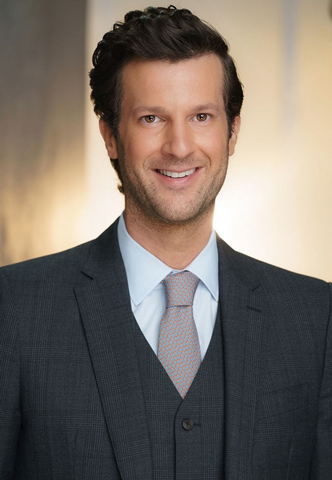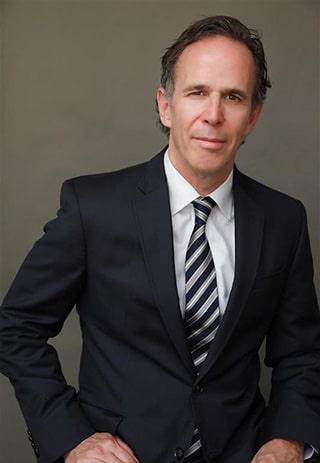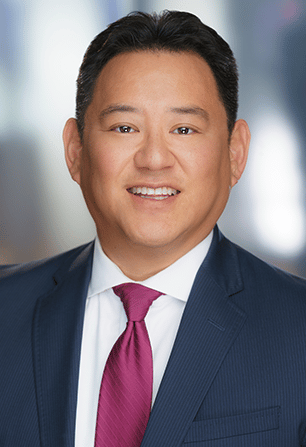A network of interstates and roadways facilitates the ebb and flow of traffic in Orange County. From busy I-5 that courses through the county, connecting major cities, to the arterial I-405, navigating the area’s extensive transportation system is a daily reality for thousands. And every day, travelers on these roadways are at risk of being injured in a car accident. If you or a loved one suffered injuries in a motor vehicle crash, you need an Orange County car accident lawyer with a deep understanding of the local dynamics who will fight for maximum compensation for your medical bills and other losses.
At Wilshire Law Firm, our focus is on your well-being and achieving the best possible outcome for your case. Contact us today to schedule a free consultation and let us be your advocates in the pursuit of justice.
Why Choose Wilshire Law Firm for Your Orange County Car Accident Claim?
For over 15 years, the Orange County car accident lawyers at Wilshire Law Firm have provided personalized legal services for injured accident victims in and around Orange County. Through the years we have recovered over $1 billion in compensation in verdicts and settlements on behalf of our clients. We can help you, too.
When you hire a lawyer from our firm, you hire a team of legal professionals who will work tirelessly to defend your rights and ensure you recover the compensation you need and deserve. Contact us today for a free consultation, and see for yourself what makes us stand out among other personal injury law firms.
Do I have a Car Accident Case?
Negligence in a car accident case refers to the failure to exercise the level of care that a reasonably prudent person would have exercised in similar circumstances. When someone acts negligently and causes a car accident, they may be held legally responsible for the resulting damages. To establish a successful car accident claim based on negligence, the injured party (plaintiff) typically needs to prove the following four elements:
- Duty of Care: The first element involves demonstrating that the at-fault party (defendant) owed a duty of care to the injured party. In the context of car accidents, all drivers have a duty to operate their vehicles responsibly and follow traffic laws.
- Breach of Duty: The plaintiff must show that the defendant breached their duty of care by failing to act as a reasonably prudent person would have under similar circumstances. This breach could involve actions such as speeding, running a red light, distracted driving, or other negligent behaviors.
- Causation: It must be established that the defendant’s breach of duty was a direct cause of the car accident and the resulting injuries. In legal terms, this is often divided into two components: cause in fact (the defendant’s actions were a factual cause of the harm) and proximate cause (the harm was a foreseeable consequence of the defendant’s actions).
- Damages: The plaintiff must have suffered actual damages, such as bodily injuries, property damage, medical expenses, lost wages, or pain and suffering. Without measurable damages, there is typically no basis for a legal claim.
Demonstrating negligence and establishing these four elements is essential for holding the at-fault party accountable and seeking compensation for the losses incurred due to the car accident.
Who Pays the Medical Bills in Orange County Car Accidents?
California is considered an “at-fault” or “tort” state when it comes to car accident insurance claims. This means that when a car accident occurs, the at-fault party and their insurance company are typically responsible for covering the damages incurred by the other parties involved in the accident.
In California, all drivers are required to carry liability insurance to cover the costs of injuries and property damage they may cause in an accident. Drivers are required to carry a minimum of:
- $15,000 per person in bodily injury liability insurance
- $30,000 per accident in bodily injury liability insurance
- $5,000 in property damage liability insurance
When an accident occurs, the at-fault driver’s insurance company is typically the first source of compensation for the victims. If the at-fault party’s insurance coverage is insufficient to cover the damages or if there are disputes about liability, the injured parties have the option to pursue legal action against the at-fault driver to seek additional compensation.
Should I Take a First Offer from the Insurance Company?
Insurance adjusters are trained to settle claims for the least amount possible. They know every scare tactic to employ in order to get car accident victims to sign on the dotted line. Oftentimes, they’ll tell the accident victim that involving an attorney will only complicate the process and draw it out. That couldn’t be further from the truth.
A fair and just settlement amount can’t be determined with a single phone call from a sneaky, manipulative insurance adjuster. You need REAL, legal representation for you and your family. Our attorneys will FIGHT the insurance companies in order to get you the justice and compensation you deserve for your car accident.
Insurance companies will try to lowball you with a fast, easy offer. It may even look generous at first. But it will fall woefully short if your recovery takes longer than you anticipated or if there are complications. And once you accept the settlement amount, there’s no going back and asking for more money.
This is one of many reasons why you should never accept an offer from an insurance company without talking with a lawyer to understand the full value of your claim.
What Damages Are Available to Car Accident Victims?
Car accident victims may be entitled to various types of damages to compensate for the losses they have suffered as a result of the collision. The specific damages available can vary based on the circumstances of the accident, but common types of damages include:
- Medical Expenses: This includes the costs of medical treatment, hospitalization, surgery, prescription medications, rehabilitation, and any other healthcare-related expenses resulting from the accident.
- Property Damage: Damages to the victim’s vehicle or other personal property may be covered. This includes the cost of repairs or replacement of the damaged property.
- Lost Income: If the victim is unable to work due to injuries sustained in the accident, they may be entitled to compensation for lost wages. This can include past and future income lost during the recovery period.
- Pain and Suffering: Non-economic damages such as physical pain, emotional distress, and mental anguish resulting from the accident may be compensable. Calculating pain and suffering is subjective and may involve factors such as the nature and severity of the injuries.
- Permanent Disability or Disfigurement: If the accident results in a long-term or permanent disability or disfigurement, the victim may be entitled to compensation for the impact on their quality of life.
- Loss of Consortium: In some cases, the spouse or family members of the injured person may be entitled to compensation for the loss of companionship, support, and services due to the injuries sustained in the accident.
- Funeral and Burial Expenses: In the unfortunate event of a fatal car accident, the family of the deceased may be entitled to compensation for funeral and burial expenses.
Consulting with a car accident attorney from Wilshire Law Firm can help you understand your rights and pursue fair compensation for your losses based on the specific circumstances of your case.
What if I’m Partly to Blame for My Car Crash?
California follows a comparative negligence standard when it comes to car accidents. Comparative negligence is a legal principle that allows for the allocation of fault among the parties involved in an accident, and the compensation awarded is then adjusted based on each party’s degree of fault. This concept recognizes that often, more than one party may contribute to an accident.
After a car accident, the parties involved may dispute who is at fault. This can be determined through evidence such as eyewitness accounts, police reports, and other relevant information. If multiple parties are found to be at fault, their respective percentages of fault are determined. So, if one driver is deemed 70% at fault and the other 30%, the injured party’s compensation will be reduced by that percentage. For instance, if the total damages amount to $100,000, and the injured party is 20% at fault, they would receive $80,000 (80% of the total damages).
California follows a pure comparative negligence standard, which means that a person who is injured in an accident can still recover damages even if they are mostly at fault. However, the amount of compensation they receive is still reduced by their percentage of fault. Some states that follow a comparative negligence standard only allow injured parties to recover damages if they are less than 50% or 51% at fault, depending on the state.
Be aware that insurance companies may try to claim that your actions played a role in the accident to devalue your claim and pay you less. Having an experienced lawyer on your side ensures your rights are protected.
What Should I Do After a Car Accident?
Orange County embodies California’s car culture. Most people and tourists use cars to get around. Add trucks, service vehicles and motorcycles to the mix and accidents are bound to happen. While no one likes to think about a car accident, it’s best to know what to do if one should occur.
Learn More: What To Do After A Car Accident
Check on yourself and any passengers
Safety is priority No. 1. Ideally, the accident scene should remain untouched but if you’re on a busy street or freeway, it’s best to attempt to get out of harm’s way. One caveat: do not do this if it isn’t safe. Wait for emergency response personnel to arrive if that’s the case.
Call 911
Assess your injuries, then the injuries of others involved in the accident, and call 911. Even if you think no one is injured, you should call 911. You could be in a state of shock, causing you not to feel anything in the moment. There’s also the possibility that you or someone else may have suffered internal injuries that aren’t apparent yet. If you refuse medical attention, the insurance company will also use it to try and deny your claim or greatly reduce their offer. The other reason to call emergency responders is to ensure the police arrive on the scene and complete an accident report. You’ll need this for your insurance claims or any legal actions you wish to take.
Document the scene of the accident
Take photos! Document all damage to the vehicles involved, injuries, traffic signals, license plates, and anything else you think is noteworthy, such as landmarks or street signs.
Exchange information with the other driver(s)
Take several photos of the other driver’s license, registration, and insurance card. While you’re doing this, don’t make any comments about the accident. Of course, don’t start an argument. If the other person is agitated, avoid interacting with them. Instead, wait for police or fire department personnel to arrive and let them handle the information exchange.
Never apologize or admit guilt
In the aftermath of an accident, you’ll probably be shaken up and unable to correctly judge exactly who was at fault. Even if you think you may have been partially responsible for the accident, don’t say that or apologize. Any admission of guilt or an apology can put you at fault for the accident. The insurance company could then use that to try to deny your claim outright.
See if there were any witnesses
If any bystanders or motorists saw the accident, approach them for their contact information. Their account of the accident can be very valuable for your case. This is especially true if you were the victim of a hit-and-run.
Report the Accident to Your Insurance Company
Even if you are not at fault in the accident, you will need to report the crash to your own insurance company. Failure to do so may result in your insurance company denying your claim or canceling your policy altogether. Be sure that you only give the basic information — time, date, and location of the accident; types of cars involved; and the insurance information for other drivers involved, if you have it. Never make any statements or sign any agreements. Remember that your words may be used against you. It’s best to let your attorney handle all communications with your insurance provider.
Contact an Orange County Car Accident Lawyer
Contact a lawyer as soon as possible to discuss your case and legal options. If you choose to retain their services, they will guide you through the legal process and protect your right to fair compensation for your injuries and other damages.
Contact the Orange County Car Accident Lawyers at Wilshire Law Firm Today
At Wilshire Law Firm, we recognize that accidents can happen anywhere, from the congestion of the Santa Ana Freeway to the sprawling expanses of the Riverside Freeway. Whether you’ve been involved in a collision on the busy streets of Irvine, the scenic drives of Laguna Beach, or the commercial corridors near Anaheim, our seasoned car accident attorneys in Orange County are here to guide you through the legal process.
And if financial concerns stop you from hiring a car accident lawyer, they shouldn’t. Wilshire Law Firm works on a contingency basis. That means no upfront or hidden fees. We only get paid once we win or settle your case. If we don’t win, you don’t pay. Period.
We’ve been helping clients recover physically, emotionally, and financially for over 15 years, and we can do the same for you. Contact us today for your free consultation at (800) 501-3011. We’re available to you 24/7, every day of the year.











